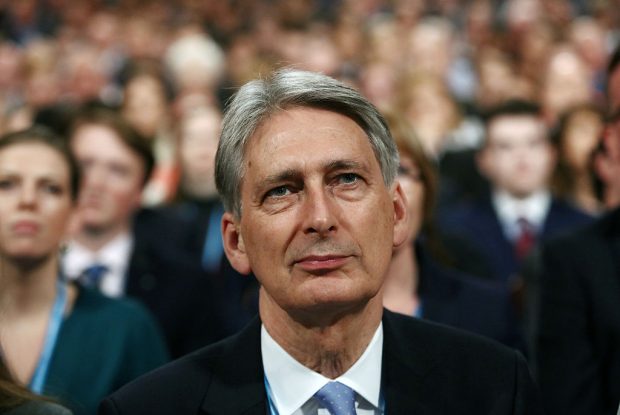In the run-up to the referendum, Philip Hammond was one of those warning of the dire consequences of a vote to leave the EU. He predicted that Brexit would have a ‘chilling effect’ on the UK economy and said there would be uncertainty for years to come. Since being made Chancellor, Hammond has softened his language about the doom and gloom of Brexit. But only just. This morning, he’s been touring the studios and airwaves ahead of his keynote speech at the Tory party conference in Birmingham. His headline announcement? Ditching the policy put in place by George Osborne to wipe out the deficit by 2020. But while the Chancellor has partly torn up his predecessor’s plan, he’s also borrowing a thing or two from Osborne in suggesting – despite many of the signs since the vote – that Brexit might not be all good news, saying our economy is facing a ‘rollercoaster ride’ ahead.
Nick Robinson this morning took him to task on this point during his interview on Today. He asked him, given that job figures are healthy, the service and retail sectors look to be resilient and Britain’s GDP growth seems encouraging, ‘What is the problem to which you’re trying to look for a solution?’. Hammond had this to say:
‘There is a problem that businesses are now uncertain about what the future arrangements with the EU will be. We will have to wait for the hard data but anecdotally we hear of businesses postponing investment decisions. And if we don’t do something, if we don’t intervene to counteract that effect, in time that would have an impact on jobs and growth. It is to make sure that we can intervene that we will push back the target for fiscal balance.’
In short, Hammond is making it clear he’s still sceptical about the glimmers of economic prosperity which have emerged since the referendum. The economists might have upped their predictions, and the Treasury’s latest forecasts have reverted to matching those made in the run-up to the vote. But Hammond, for one, isn’t buying it. By saying he’ll wait for ‘hard data’, Hammond is pouring cold water on the upbeat picture to emerge of Britain’s economy since the vote. Of course, having a degree of healthy scepticism is wise. Yet having found himself on the wrong side of the referendum vote, Hammond must strike a delicate balance to ensure his warnings of uncertainty don’t end up becoming a self-fulfilling prophecy.







Comments